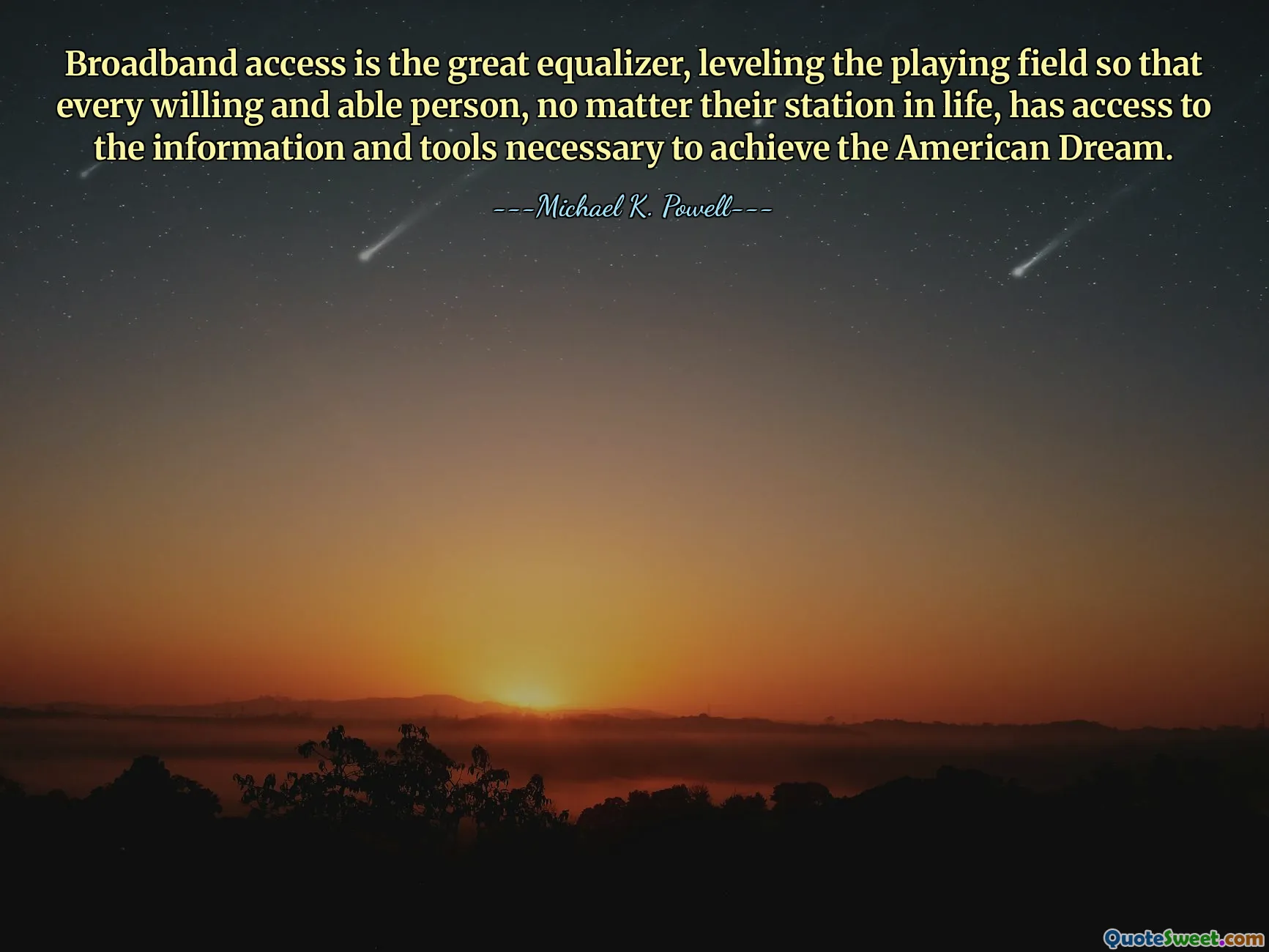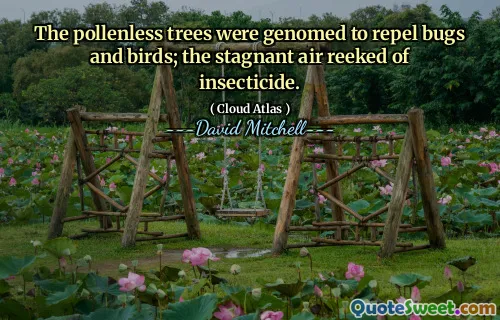
Broadband access is the great equalizer, leveling the playing field so that every willing and able person, no matter their station in life, has access to the information and tools necessary to achieve the American Dream.
In contemporary society, access to information and technology has become as fundamental as traditional utilities like water and electricity. This quote underscores the pivotal role that broadband access plays in creating equitable opportunities across diverse populations. At its core, broadband serves as a catalyst for social mobility by granting individuals the capability to acquire knowledge, engage in digital economies, and connect with broader communities irrespective of their socioeconomic background.
The metaphor of broadband as "the great equalizer" resonates deeply because it highlights the transformative power of connectivity. Unlike previous eras where barriers often determined the reach and accessibility of information, high-speed internet flattens many of these divides. It enables aspiring individuals from disadvantaged or marginalized circumstances to access educational resources, remote work opportunities, health services, and civic participation mechanisms that were previously out of reach.
Moreover, emphasizing that broadband levels the playing field "no matter their station in life" tackles a profound challenge humanity faces: systemic inequality. It conveys the empowering notion that digital infrastructure can play a pivotal role in reducing disparities by democratizing the tools and information necessary for success. This is not merely about access but also about fostering agency among all people, cultivating a society where potential is determined by one's ambition and ability rather than geographical or socioeconomic limitations.
Importantly, the invocation of the "American Dream" places the quote within a cultural context that aspires to equal opportunity and upward mobility. Achieving this ideal, long celebrated in American ethos, increasingly depends on digital inclusivity. When access to broadband is restricted, those without it are rendered invisible to many avenues for advancement, perpetuating cycles of inequality.
However, this vision is also a call to action for policymakers, corporations, and communities to prioritize equitable internet access. It challenges stakeholders to recognize broadband not merely as a luxury or commodity but as an essential public good. By investing in infrastructure, education around digital literacy, and affordable access, societies move closer to fulfilling the promise that opportunity is genuinely accessible to all.
In sum, broadband access extends beyond technology; it is a cornerstone for empowerment, participation, and realizing collective potential. Recognizing and acting on this belief can help build vibrant, inclusive societies centered on fairness and opportunity.











